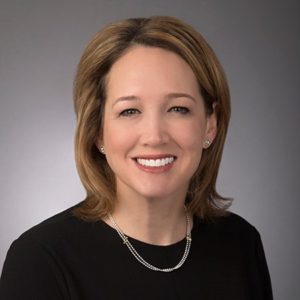
For more than a year, America’s nursing homes have been besieged by the COVID-19 pandemic, which has tragically claimed the lives of more than 130,000 residents and 1,600 staff. While America’s nursing homes are no outlier compared to nursing homes globally, the pandemic has nevertheless reignited debate about the American elder care system and regulators’ role in it.
Following enactment of the American Rescue Plan, the administration and Congress appear to be turning their attention away from emergency assistance and toward oversight, a stance that will inform future legislative and regulatory action.
The Department of Health and Human Services and the Centers for Medicare & Medicaid Services have already taken several actions to combat the pandemic in nursing homes. Regardless, agency and industry responses have come under fire from Congress, resulting in a litany of hearings and legislation focused on emergent issues. Proposals included funding for technical assistance, personal protective equipment and testing. Others sought to address what some view as deficiencies in the CMS Five-Star Quality Rating and Special Focus Facility programs.
Likewise, federal watchdogs also have been active. They have examined the government’s pandemic response and more deeply reviewed pre-pandemic quality of care concerns, as well as how care quality may have exacerbated the pandemic’s effects in nursing homes.
Potential legislative, oversight and regulatory activity
As the pandemic recedes, Congress, the Government Accountability Office and the HHS Office of Inspector General are likely to turn their attention to the nursing home pandemic response. Congressional Democrats are likely to convene additional oversight hearings and introduce legislation. The Biden-Harris administration is expected to pursue an aggressive regulatory agenda focused on increasing resident safety through stricter requirements and enhanced survey and enforcement, including stronger penalties.
On March 15, the American Health Care Association and LeadingAge released a reform agenda called the Care for Our Seniors Act, intended “to address long-standing challenges affecting the quality of care provided in America’s nursing homes.” Specific proposals include enhanced infection control practices, new federal requirements for 24-hour staffing by registered nurses, and moving away from a “punitive” survey process. This may be a starting point for policy negotiations.
The outlook for action in the 117th Congress remains unclear. The GAO and the OIG will likely release reports in the first half of 2021 related to nursing homes and safety during the pandemic. Those may spark Congressional hearings with themes that echo the Senate Finance Committee’s “National Tragedy” hearing in March. Keep a close watch on these hearings, as members may use them to build a case for legislative action.
The Biden-Harris administration has already begun reviewing rules issued during the Trump administration, with an eye toward resetting the appropriate nature and scope of regulations. Rulemaking changes may affect areas explicitly and indirectly linked to COVID-19, including:
COVID-19 response
The Biden-Harris Campaign promoted several policies for nursing homes, including: “effective point-of-care testing and contact tracing…updated public health guidance…optimal PPE…in-person training on the proper use, donning and doffing of PPE,” as well as requiring nursing homes to “conduct regular open sessions with residents and family members” to discuss pandemic issues. Assume the administration will look to these proposals as a basis for action. The administration will also be tasked with returning nursing homes to “normal” following the pandemic, which will include unraveling myriad regulatory flexibilities and waivers.

Infection prevention and control
In 2019, CMS published a proposed rule seeking to require nursing home infection preventionists to work “sufficient time” rather than “part time.” That approach met fierce resistance. The pandemic hit only months later, and the rule was not finalized. The Biden-Harris administration will likely pursue the opposite approach, given its campaign proposal to “require an infectious disease specialist in every regulated setting.”
Surveys and enforcement
Nursing homes undergo certification surveys more frequently than any other setting of care. During the pandemic, CMS took action to reduce this survey burden, including temporarily pausing some surveys and suspending imposition of civil money penalties. These actions fell against the backdrop of changes to the CMP structure CMS made in 2017, which the agency characterized as an effort to “increase national consistency.”
The Biden-Harris administration and senior HHS leadership have made their positions on these deregulation measures clear, proposing to “increase the frequency and scope of surveys and data collection” and “conduct adequate numbers of surveys and restore levels of penalties needed to obtain compliance with quality standards.” HHS Secretary Xavier Becerra previously led a group of 17 attorneys general opposing the “regulatory roll-back” and CMP changes.
It is unclear how or if the survey cadence will increase, but there will likely be an increased burden on stressed and cash-strapped state survey agencies. The Biden-Harris proposal would require stable, long-term funding allowing for personnel investments. Even under the Trump administration, CMS requested a larger survey and certification budget to fund survey obligations, suggesting enhancement of those obligations would require even more money.
Some in the industry consider surveys intrusive, punitive and even arbitrary. Some may doubt the benefit of increased surveys — as opposed, for example, to increasing availability and intensity of technical assistance. By contrast, resident advocates would welcome additional surveys — and also probably support increased technical assistance. Many will be concerned if an increase in surveys is not paired with funding. States, some already struggling with current survey demands, could be forced to lengthen response times for certain surveys, worrying industry and advocates alike.
Ban on pre-dispute arbitration agreements
In 2016, CMS finalized a rule that effectively banned pre-dispute binding arbitration agreements as a condition for admission. Following a legal challenge, a court prevented CMS from enforcing the rule. Then, in 2017, CMS published a proposed rule to remove the prohibition and instead focused on ensuring transparency in the agreements; CMS finalized it in 2019. The Biden-Harris Campaign stated it would reinstate the Obama-era rule, though it will likely be challenged in court.
As the nation reels from the heartbreaking COVID-19 pandemic, scrutiny of the response is all but certain. Anticipate enhanced oversight from Congress, GAO and OIG, as well as HHS and CMS. Prepare now for Congress to legislate with respect to quality of care and reporting, and prepare for stricter regulation and guidance, more frequent surveys, and higher and more frequent CMPs and other enforcement remedies.
Karen Christian is a partner in the congressional investigations practice at Akin Gump Strauss Hauer & Feld LLP. She previously served as general counsel of the House Energy and Commerce Committee and chief counsel to the Subcommittee on Oversight and Investigations.
Matthew Hittle is a senior policy advisor at Akin Gump, where he assists clients with Medicare and Medicaid-related issues. Prior to joining the firm, he was a senior advisor to former CMS Administrator Seema Verma.



